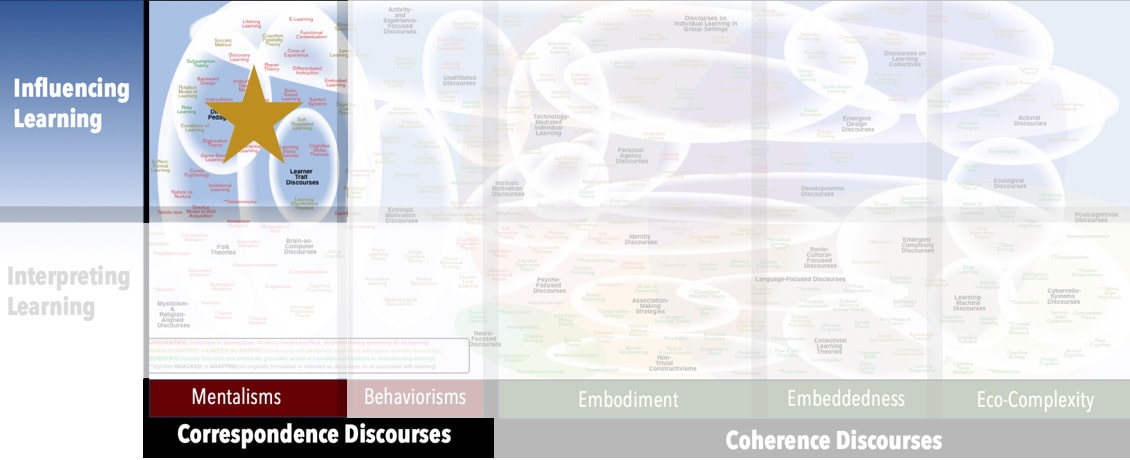Focus
Teacher-directed blending of face-to-face and online learningPrincipal Metaphors
The Rotation Model of Learning is not explicit about or aligned with any theory of learning. Direct references to learning are most often suggestive of Folk Theories, in particular, the Acquisition Metaphor:- Knowledge is … material
- Knowing is … mastered material
- Learner is … a container (individual)
- Learning is … acquiring
- Teaching is … facilitating, orchestrating
Originated
2010sSynopsis
The Rotation Model of Learning is an umbrella frame that encompasses different teacher-managed combinations of face-to-face and on-screen learning. The model is intended to promote greater opportunities for collaborative work, independent practice, and teacher-led small-group instruction. Varieties of the Rotation Model of Learning include:- Flipped Classroom Model – In a Flipped Classroom, online lectures (possibly supplemented with online discussions and/or research) are accessed at home, and classroom time is devoted to activities to support understanding (e.g., individual tutoring, collaborative inquiries, peer reviewing, group discussions).
- Individual-Rotation Model – The Individual-Rotation Model is based on Learning Styles Theories. The teacher rotates learners among tasks that are seen to rely on different learning modalities.
- Lab-Rotation Model – In the Lab-Rotation Model, learners rotate between engaging in offline activities in a regular classroom (or other physical) setting and engaging in online activities (usually in a computer lab in the same building)
- Learning Stations Model (Differentiated Stations; Learning Centers; Learning through Workstations; Station Rotation) – The Learning Stations Model involves setting up distinct physical locations, each of which is associated with a specific question or problem that is to be engaged with the resources and/or tools at the station. Students rotate in groups through stations when at prespecified intervals, and station work can be either group- or individual-focused.
Commentary
There are few direct criticisms of the Rotation Model of Learning, but there are frequent concerns voiced about the conditions that might contribute to its necessity – such as dominant modes of pedagogy, inadequate resourcing of schools, and curricula that have not kept pace with societal evolutions. Concerns have also been voiced on the demands on the teacher, which shift heavily toward management of activities and away from a focus on the subject matter.Authors and/or Prominent Influences
DiffuseStatus as a Theory of Learning
The Rotation Model of Learning is not a theory of learning.Status as a Theory of Teaching
The Rotation Model of Learning is a perspective on influencing learning through managing activities, but it is a bit of a stretch to call it a theory of teaching.Status as a Scientific Theory
Through research associated with some of its near relatives, Rotation Model of Learning can be said to be supported by some empirical evidence. However, its proponents do not appear to be at all attentive to the metaphors and other theoretical commitments that drive the discourse. As such, it cannot be described as a scientific theory according to our criteria.Subdiscourses:
- Individual-Rotation Model
- Lab-Rotation Model
- Learning Stations Model (Differentiated Stations; Learning Centers; Learning through Workstations; Station Rotation)
Map Location

Please cite this article as:
Davis, B., & Francis, K. (2023). “Rotation Model of Learning” in Discourses on Learning in Education. https://learningdiscourses.com.
⇦ Back to Map
⇦ Back to List
